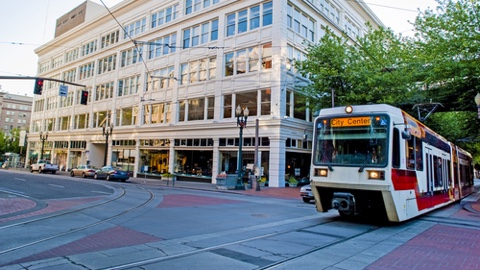
Imagine that you can call an autonomous electric vehicle, which will deliver you to the mass transit system hub nearest you and home again, after you run errands or spend the day at work. Imagine that it is affordable and timely. This dream, among others, is the work of the Global City Teams Challenge (GCTC) Transportation SuperCluster, developed by NIST.
The Transportation SuperCluster, comprised of dozens of private sector companies, MetroLab, startups, and cities, has specific interest in first mile last mile transit and sensor technology. As with all of the GCTC SuperClusters, commonality between cities is a fundamental driver, and these two focus areas seem to have translation across many municipalities.
“The idea of first mile last mile is to connect people more readily to transportation systems more seamlessly across different modes, to allow for greater efficiencies, and to lower cost. Equity plays a big role here,” said Skip Newberry, president and CEO of the Technology Association of Oregon and the Transportation SuperCluster’s co-chair. “There are lots of transportation systems but they’re spread out. The idea here is to make it easier for people to get from doorstep to doorstep – someone might be within a mile to the transit system. How do you get them there, how do you solve for those gaps?”
In addition to first mile last mile transit, the Transportation SuperCluster wants to examine the role of sensors. In close collaboration with Portland State University, they are studying sensor accuracy and durability. The two major factors in sensor efficacy are accuracy and price. Current air quality sensors used by the EPA cost around $100,000. Most cities have one or two, and that isn’t enough to gather the kind of data that could lead to sweeping changes in behavior.
There is a lot of work being done to explore more affordable sensors. Cities need a low price point and quality data, so researchers are trying things like grouping sensors together – combining higher quality with lower quality sensors in an area to achieve both distribution and accuracy.
“We have found through the GCTC that different cities can try out different sensors,” said Wilf Pinfold, CEO of Urban Systems and co-chair of the Transportation SuperCluster. “It accelerates our understanding and knowledge of what’s out there by breaking up the task into pieces and sharing that. It’s been extremely useful.”


